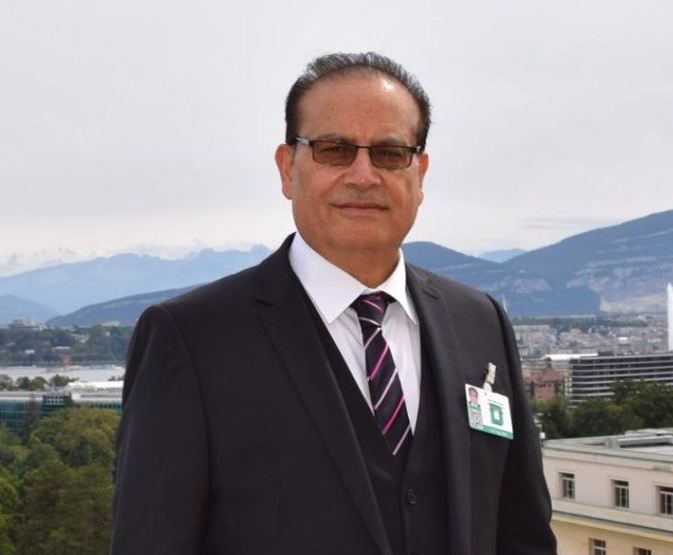By: Qamar Bashir
Macomb, Detroit, Michigan
The Establishment, after having consolidated control over all pillars of the state, the country’s polity, and the media, perhaps feels more powerful and in full control than at any time since the autocratic rule of General (R) Pervez Musharraf. Musharraf, who passed away as a fugitive in Dubai, faced an ignominious end after battling amyloidosis, a rare disease.
People, left with no effective means to express their sentiments against what they perceive as suppression, resorted to protests and agitations. These were met with brutal crackdowns, with reports of several protestors being killed at point-blank range. Amid this atmosphere of despair and helplessness, the latest interview of Richard Grenell, a former U.S. diplomat and close ally of Donald Trump, came as a breath of fresh air for Pakistanis both within the country and in the diaspora.
Grenell’s remarks resonated widely, as millions shared and retweeted his interview, pinning their hopes on his words and the potential return of a Trump administration to advocate for their lost freedoms of speech, assembly, and justice.
Naturally, Grenell’s statements provoked a strong reaction from Pakistan’s ruling elite, who responded with a mix of denial, deflection, and hostility. One of the most peculiar reactions came from PPP leader Sherry Rehman, who, despite being a prominent recipient of U.S. aid herself, questioned Richard Grenell’s position within the U.S. official hierarchy. She dismissed his comments as inconsequential, attempting to undermine their significance without addressing the substance of his critique.
Another controversial remark emerged from a senior Pakistani leader who suggested an improbable “swap” of Imran Khan with Aafia Siddiqui, a statement that was widely criticized for its absurdity and insensitivity.
However, the most bizarre and convoluted reaction came from Defense Minister Khawaja Asif, who introduced a baseless theory he termed “Operation Goldsmith.” He alleged that Grenell had been enlisted by external forces, particularly Jemima Goldsmith, to destabilize Pakistan—the world’s only Muslim-majority nuclear-armed nation.
This claim, entirely without evidence, drew widespread ridicule for its outlandishness. Jemima Goldsmith, visibly dismayed by the allegations, firmly denied any involvement in Pakistani politics. She stated unequivocally that she has never, and would never, finance or interfere in political affairs in Pakistan, either directly or indirectly.
Grenell, for his part, expressed shock and surprise at the incoherence of Khawaja Asif’s statements. Taking to social media, he criticized the Defense Minister’s baseless claims as reckless and called for accountability from Pakistan’s diplomatic mission in Washington, D.C. Tagging the Pakistan Embassy (@PakinUSA) and Ambassador Rizwan Sheikh, he demanded an explanation for the inflammatory rhetoric and the apparent indifference to death threats arising from such conspiracy theories. Grenell also suggested that the U.S. government review the aid it provides to Pakistan, questioning whether American taxpayer funds should continue to support a regime that tolerates such behavior from its senior officials.
Grenell’s critique, particularly his call for a reevaluation of U.S. aid, has added a new dimension to the ongoing discourse about governance and accountability in Pakistan. By drawing attention to the conduct of senior officials, his comments could intensify international scrutiny of Pakistan’s political landscape. While the establishment’s reactions were intended to discredit Grenell, they inadvertently highlighted the very issues he sought to expose, reinforcing the perception that Pakistan’s ruling elite is increasingly out of touch with reality.
The widespread sharing and discussion of Grenell’s interview reflect a growing frustration among Pakistanis, both at home and abroad. In an environment where traditional media is tightly controlled, social media has become a critical platform for voicing dissent. The international attention generated by Grenell’s comments provides a counter-narrative to the establishment’s control, energizing opposition movements and raising awareness about the country’s political challenges.
If Grenell’s views gain traction within U.S. policymaking circles, especially under a potential Trump administration, Pakistan’s ruling elite may face significant diplomatic pressure. The United States has historically used financial aid as leverage to influence Pakistan’s policies. A credible threat to reduce or reallocate aid could compel the establishment to soften its stance on political dissent and human rights. However, this depends on how unified and consistent U.S. foreign policy toward Pakistan remains.
Imran Khan’s incarceration and the suppression of his political movement have attracted international criticism. Grenell’s remarks amplify this scrutiny, potentially strengthening calls for Khan’s release. However, while international attention can embolden Khan’s supporters, his political fate remains tied to Pakistan’s internal dynamics, including public mobilization and potential fractures within the establishment. External voices like Grenell’s may act as a catalyst but cannot singularly change the situation.
If Grenell secures a formal role in a future U.S. administration, his statements could carry more weight and lead to increased international scrutiny of Pakistan’s governance. As a special envoy, he could advocate for human rights and political freedoms, challenging the ruling elite’s actions. However, his effectiveness would depend on whether the U.S. government adopts a coherent and sustained approach toward Pakistan, along with support from other international actors. For now, Grenell’s remarks serve as a symbolic yet powerful reminder of the need for accountability and reform.
The Richard Grenelles remarks is an addition to many voices which has been raised at various forums in the United State expressing deep concern over weakening of democracy and reduction of democratic instititons just rubber stamps. like Grenelle, the U.S. Congress, Biden administration, and civil society have increasingly voiced concerns over Pakistan’s political trajectory, focusing on human rights abuses and democratic backsliding.
A recent congressional resolution called for an investigation into alleged election irregularities, while over 60 lawmakers urged President Biden to push for the release of imprisoned former Prime Minister Imran Khan. The Biden administration has condemned the use of military courts to try civilians and raised alarms over restrictions on free speech, assembly, and due process. Meanwhile, international organizations and civil society groups have echoed calls for accountability and democratic reforms, emphasizing the need for transparency, fair elections, and the protection of fundamental rights in Pakistan.
These voices may collectively compel the upcoming U.S. administration to take decisive action against Pakistan’s ruling elite. If this pressure intensifies, even a slight adjustment in IMF policies could cripple the fragile economy of country, forcing it to confront its governance failures. Let us hope this prompts Pakistan’s leadership to learn a lesson and take swift, corrective action to avert the looming economic meltdown.
By: Qamar Bashir
Press Secretary to the President (Rtd)
Former Press Minister at Embassy of Pakistan to France
Former MD, SRBC












